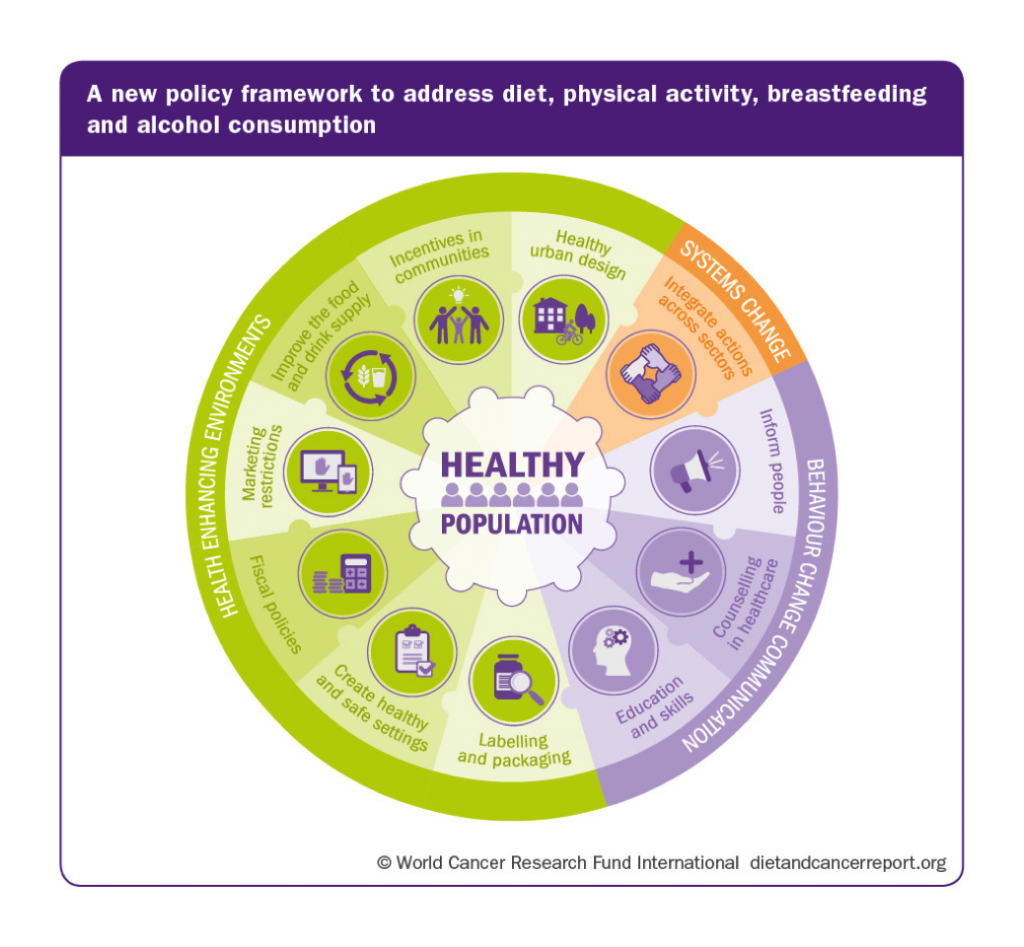I was thrilled and honored to be invited to the launch event of AICR/WCRF Third Expert Report, Diet, Nutrition, Physical Activity, and Cancer: a Global Perspective. The report was globally launched across continents on May 24, 2018. Referring to the release of the report as a “launch” really was fitting: Think of how a ship launches out to sea, bearing important cargo as it sends ripples in the water that spread far and wide. Here is a sampling of discussions, that I have had with colleagues, friends, and family.
Why is this report such a big deal?
This report provides the most comprehensive analysis of research on lifestyle choices and cancer prevention.
The research review and recommendations in previous editions of the report were the gold-standard references relied on by committees drafting the Dietary Guidelines for Americans and other cancer organizations’ reports on nutrition and physical activity. This new report will likewise provide a new, even stronger, framework for such endeavors in the future.
Why do so many groups refer to the AICR/WCRF Report as the gold standard?
There are lots of great reviews and analyses on individual topics but putting these in the context of the whole picture of peoples’ complex lifestyles demands that a comprehensive review be made of all of these factors. Only then can the most important factors be identified and the most meaningful conclusions reached.
What does the report mean for survivors?
The report recommends that once cancer survivors complete their initial treatment, they should follow its cancer prevention recommendations if they can unless advised otherwise by their personal healthcare provider.
- Cancer survivors represent a diverse group with different kinds and stages of cancer and different types of treatment. Some can follow these recommendations from the time of diagnosis. Others may have effects of cancer or its treatment that make other aspects of diet and eating a higher priority for a while.
- Members of the Expert panel who reviewed the report, note that it is possible that eating habits that help prevent cancer may not be exactly the same as choices that promote best possible outcomes for people who do develop cancers. But evidence is growing that physical activity may bring multiple benefits for cancer survivors, and considerable research is underway to identify dietary habits that make the biggest difference to their short-term and long-term health.
Meanwhile, this report provides a far better foundation for making lifestyle choices than many of the more questionable options in messages that bombard survivors from all directions.

Who is this report for?
The ripple effects of this report and its recommendations are huge and will be valuable to many.
- People everywhere who want to reduce their risk of cancer but find themselves confused by the headline hype that surrounds us all can count on the recommendations here for steps that can make a difference in their risk. And the report’s emphasis that basic shifts, not perfection, is what makes a difference is truly empowering.
- Health professionals will be able to rely on the recommendations to provide clarity in prioritizing choices for their patients about reducing cancer risk. And having complete, transparent access to the analyses of research will enable them to address patient questions about choices not identified in the recommendations.
- Researchers can turn to the report to identify gaps in current research that need to be addressed. And the rigorous criteria for analyzing research data in the report is already shaping how research is conducted and reported so that it is eligible to be included in the ongoing Continuous Update Project analyses.
- Policy makers, public health organizations, schools, and workplace wellness programs can use this as the foundation on which to base their program goals and strategies. The report provides the framework for identifying priorities for attention.
With the goals set, these groups have the task of carrying the baton through education and by improving safe and affordable access to healthy options for physical activity and diet. We all need to come together to help people put the science-based recommendations in this report into action to reduce the cancer burden in our country.





